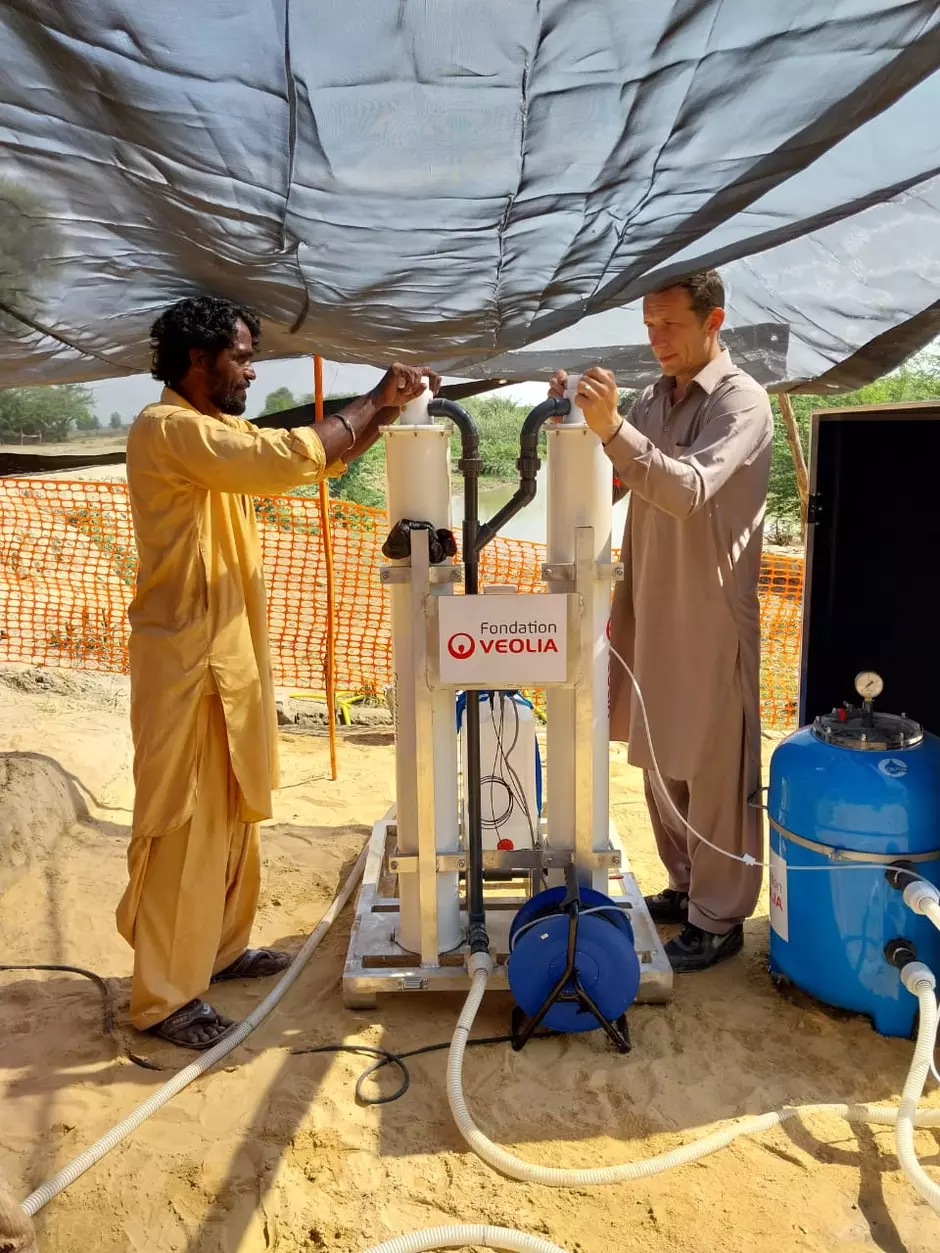Romain Thémereau, who manages a drinking water production plant for Veolia in the Loir-et-Cher region of France, spent three weeks in Pakistan deploying Aquaforces 2000 after the heavy floods that hit the country.

What were the first images of Pakistan when you arrived?
Romain Thémereau: We arrived, with Romain Verchère and Nathalie Vigneron-Larosa, via Karachi, a city that has not been much affected by the floods but which has an impressive population of 15 million. Just enough time to buy the shalwar kameez, the classic Pakistani outfit, and we headed east. And it was only when we arrived in Sanghar that we discovered the impact of the floods.
How did the mission go?
RT: The mission was not easy and the needs assessment phase was time consuming. We had to identify the best environment for deploying our stations when the floods had brought salinity, an element that Aquaforces 2000 does not treat.
We had, a priori, two resources at our disposal: well water, which was affected by salinity and therefore unsuitable for treatment by an Aquaforce 2000, and irrigation canals, which carried turbid water but in a discontinuous manner. We finally identified a third resource: artificial ponds, filled by the irrigation canals.
Who were your interlocutors on the spot?
RT: The village leaders, who MSF brought together before deploying our first Aquaforce to ensure that all communities would have access to water. With Médecins Sans Frontières, the challenge was also to find the right profiles to train those who would operate the stations after our departure. Because an Aquaforce is a machine and human know-how.
Interviewed on 15 December 2022

